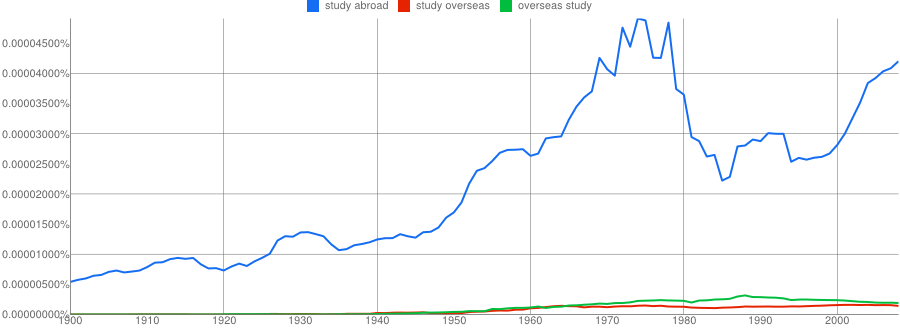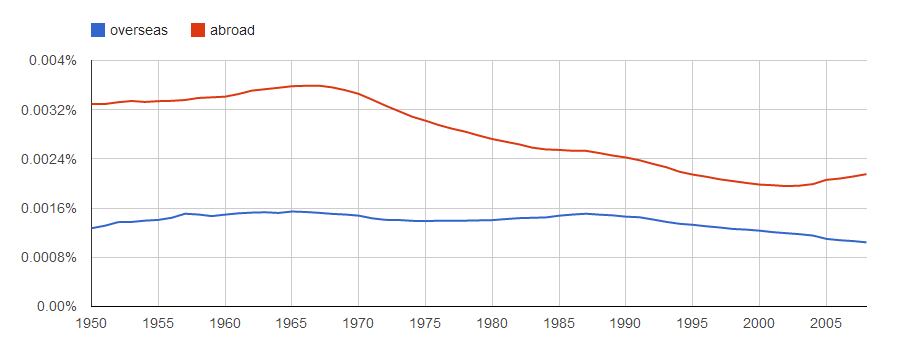I'm a native speaker of Inland Northern American English. My intuition tells me that the word "abroad" is unremarkable, especially in collocations like "study abroad".
However, I've been correcting English entries on Lang-8 lately, and I noticed that a Canadian English speaker made a correction I wouldn't have. She changed the following clause:
she told me that she was going study abroad next month
to this:
she told me that she was going to study overseas next month
Her explanation was the following:
Hardly anyone ever says “abroad” in real life, it’s a bit of an awkward word. We say overseas, in another country, outside the country, etc.
This is quite a different impression than I get when I see the word "abroad". That said, I know I can't always trust my intuition on matters of usage.
Is she correct?


